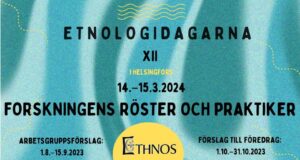The 8th Digital Humanities in the Nordic and Baltic Countries (DHNB) will be held in Reykjavík 27-31 May 2024.
Call for proposals is now open
The DHNB aims to support research, education, and the dissemination of digital humanities in the Nordic and Baltic countries. For over seven years, the DHNB conferences have brought together academics, researchers, students, librarians, archivists, curators and museum professionals interested in creating and using digitised and born-digital collections as research data in the humanities, social sciences and arts. The DHNB has matured both as an organisation and as a community, something which is evident in the extensive compilation of outputs (https://dhnb.eu/publications/). Our annual gatherings have consistently served as a forum to showcase digital research, methodologies, technology, pedagogy and practice at the intersection that exists between academic disciplines and cultural heritage institutions. With its present level of maturity, the DHNB is now offering an opportunity to reflect on the development of these approaches and share insights that have been gained along the way.
Special theme:
FROM EXPERIMENTATION TO EXPERIENCE: LESSONS LEARNED FROM THE INTERSECTIONS BETWEEN DIGITAL HUMANITIES AND CULTURAL HERITAGE
One unique aspect of the DHNB community is the active involvement of professionals from libraries, archives, and museums alongside digital humanities researchers. In the DHNB 2024 call for papers, we would particularly like to place emphasis on sharing lessons learned from collaborative initiatives between academic and cultural heritage communities, something that is exemplified by the work of our conference host, the Icelandic Centre for Digital Humanities and Arts.
The call closes 21 january 2024
